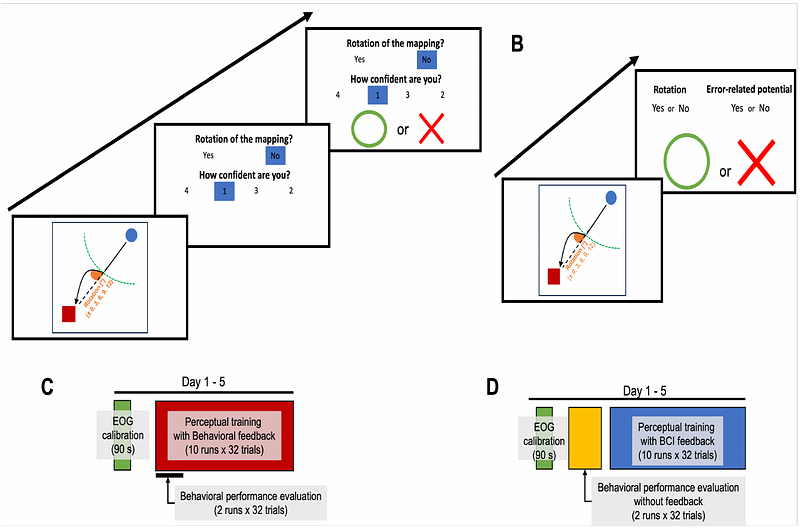Brain-computer interface training fosters perceptual skills to detect errors

Brain-computer interface training fosters perceptual skills to detect errors
Liu, D. H.; Iwane, F.; Zhang, M.; Cohen, L.; Millan, J. d. R.
AbstractAccurate perception of visuo-motor errors is essential for perceptual and sensorimotor learning so that corrective actions are performed timely to maintain stability and goal-directed behavior. However, a key challenge remain: conventional, behavioral perceptual training - typically based on response accuracy feedback - is limited in improving sensitivity to small, subtle errors. While prior approaches have focused on modulating sensory regions to enhance perceptual learning, we propose an alternative approach: targeting a cognitive neural marker, namely the error positivity (Pe), a component of the error-related potential (ErrP) that primarily originates in the anterior cingulate cortex (ACC), a key region involved in decision-making. We hypothesize that the Pe, which reflects conscious awareness of errors, serves as a modifiable neural correlate of error perception. To address the performance bottlenecks seen in conventional, behavioral perceptual training, we show that real-time feedback on ErrP presence or absence during perceptual training over five longitudinal days enhances the Pe component and improves participants' ability to detect small visuo-motor errors - an outcome not achieved through conventional, behavioral perceptual training. These findings offer new neurophysiological insights into error perception and learning, and establish ErrP-based BCI interventions as a promising tool for accelerating perceptual learning, particularly in contexts where subtle error detection is critical.